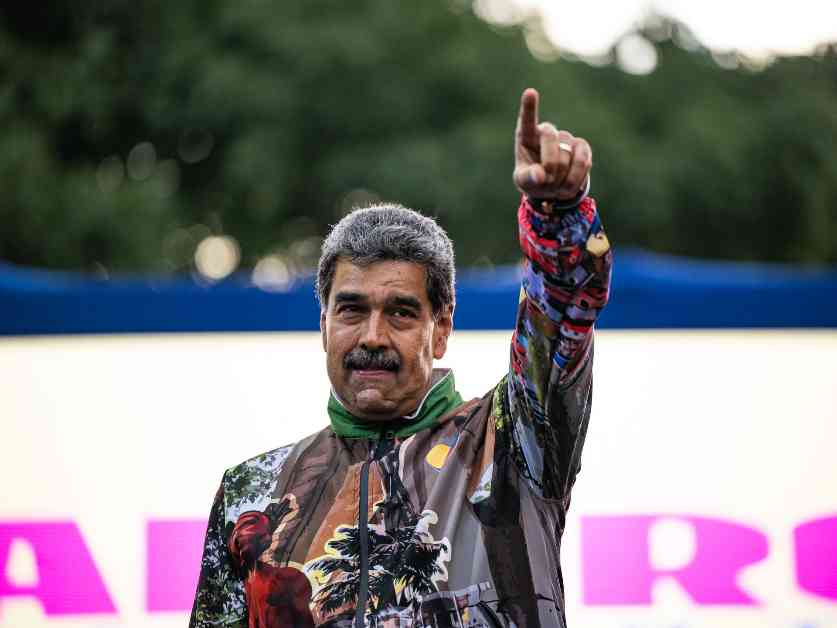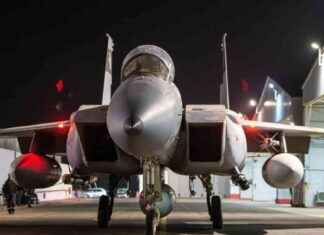Venezuelan President Nicolas Maduro has recently announced a significant reshuffling of his cabinet, a move that comes in the midst of ongoing controversy surrounding his re-election. Maduro, who claimed victory in a disputed election that has been widely condemned as fraudulent, has appointed new ministers to key positions in his government. The changes, which include new appointments in the oil, finance, and interior ministries, are seen as an attempt by Maduro to consolidate his power and address the growing unrest in the country.
New Appointments in the Cabinet
One of the most notable changes in Maduro’s cabinet is the appointment of Anabel Pereira as the new finance minister. Pereira, a seasoned economist with a background in finance, will be tasked with managing Venezuela’s struggling economy and addressing the country’s financial challenges. Another key appointment is Hector Obregon as the new president of state oil company PDVSA, replacing Pedro Tellechea. With Venezuela’s oil industry being a crucial source of revenue for the country, Obregon’s role will be crucial in managing the sector and ensuring its continued viability.
In addition to these changes, Vice President Delcy Rodriguez will now also take on the role of oil minister, adding to her already extensive list of responsibilities. Yvan Gil and Vladimir Padrino will retain their positions as foreign minister and defense minister, respectively, while governing party leader Diosdado Cabello will take on the role of interior, justice, and peace minister. These new appointments are seen as part of Maduro’s efforts to create a more cohesive and unified government in the face of increasing challenges and opposition.
Maduro’s Vision for the Future
During a televised announcement of the cabinet reshuffle, Maduro emphasized the need for a “profound renovation” of the national government. He expressed his belief that the new team would help facilitate the transition to a new era and accelerate the changes needed to meet the demands of the Venezuelan people. Maduro’s focus on stability and progress in the face of mounting criticism and unrest highlights his determination to maintain control and steer the country in a new direction.
Diosdado Cabello’s Return to the Cabinet
One of the most significant developments in Maduro’s cabinet reshuffle is the return of Diosdado Cabello to a ministerial position. Cabello, a close ally of Maduro’s predecessor Hugo Chavez, brings a wealth of experience and influence to his new role as interior, justice, and peace minister. Having previously served as vice president and legislator, as well as holding key positions in the early 2000s, Cabello’s return is seen as a strategic move by Maduro to strengthen his government and consolidate his power base.
In his new role, Cabello has emphasized the importance of achieving “definitive peace” in Venezuela, a peace that is based on justice and accountability. Cabello’s focus on upholding the rule of law and ensuring that those who violate the constitution are held accountable reflects Maduro’s commitment to maintaining order and stability in the face of growing unrest and opposition. Cabello’s return to the cabinet is expected to bolster Maduro’s position and help quell the dissent that has plagued his government in recent months.
Challenges and Controversies
Maduro’s re-election in a disputed election has sparked widespread condemnation and protests both within Venezuela and internationally. The opposition, which had been leading in pre-election polls by a significant margin, has rejected the results of the election as fraudulent and illegitimate. Election observers, regional leaders, and members of the international community have all expressed doubts about the validity of Maduro’s victory, calling for transparency and accountability in the electoral process.
The opposition’s claims of victory, based on their own data and analysis of the election results, have further fueled the controversy surrounding Maduro’s re-election. With both sides refusing to back down and escalating tensions on the ground, Venezuela remains deeply divided and on the brink of further unrest. The government’s crackdown on protests and dissent has only served to exacerbate the situation, leading to widespread condemnation and calls for a peaceful resolution to the crisis.
International Pressure and Calls for Change
As the political crisis in Venezuela continues to unfold, there is growing international pressure on Maduro to address the concerns of the opposition and the Venezuelan people. Calls for transparency, accountability, and respect for democratic principles have been echoed by leaders from around the world, with many urging Maduro to engage in dialogue and find a peaceful resolution to the crisis. The United Nations, the European Union, and the Organization of American States have all called for a peaceful and inclusive solution to the political impasse in Venezuela.
Despite mounting pressure and criticism, Maduro has shown little willingness to engage in meaningful dialogue with the opposition or to make concessions in response to their demands. His government’s heavy-handed tactics and crackdown on dissent have only served to further isolate Venezuela on the international stage and deepen the country’s economic and political woes. With the situation in Venezuela becoming increasingly dire, the need for a peaceful resolution and a return to stability has never been more urgent.
Conclusion
In conclusion, Maduro’s recent cabinet reshuffle reflects his efforts to consolidate power and address the growing challenges facing his government. The appointment of new ministers to key positions in the cabinet is seen as a strategic move to strengthen Maduro’s position and maintain control in the face of mounting criticism and unrest. However, the controversy surrounding Maduro’s re-election and the ongoing political crisis in Venezuela continue to cast a shadow over his government and raise questions about the country’s future. As tensions persist and calls for change grow louder, the need for a peaceful resolution to the crisis in Venezuela has never been more pressing.



























